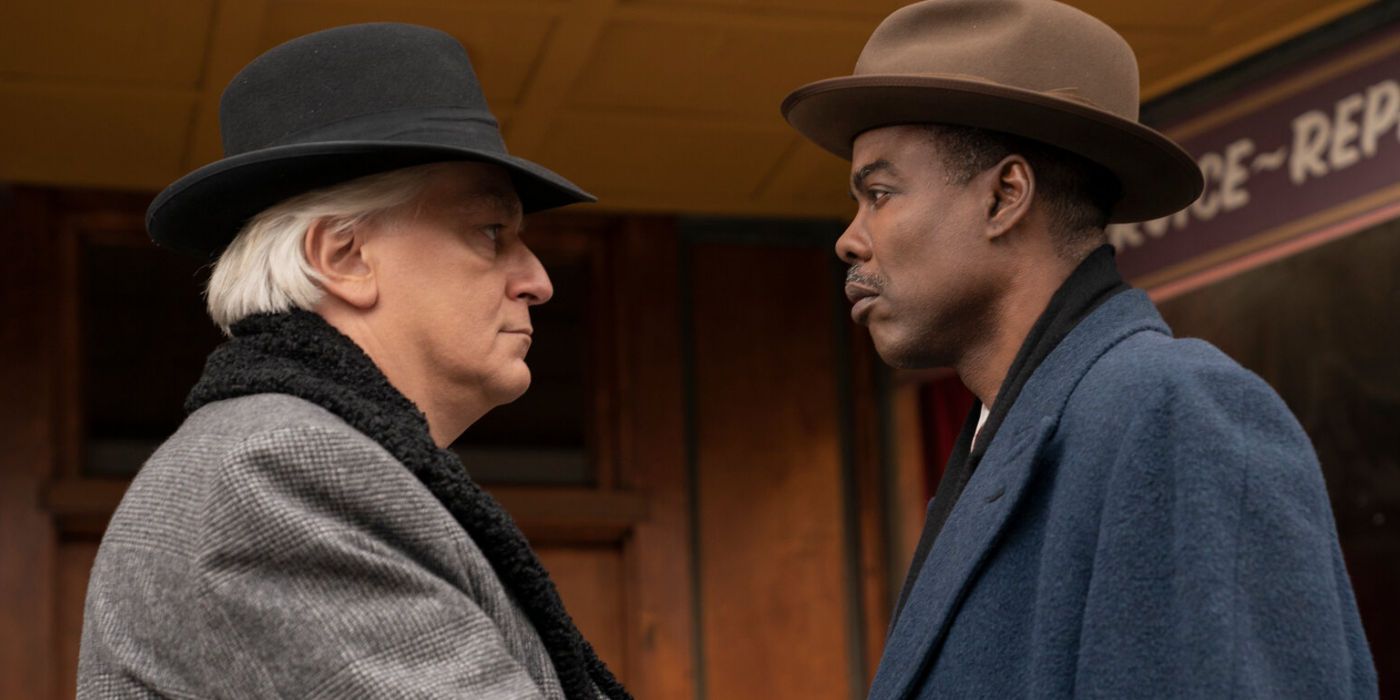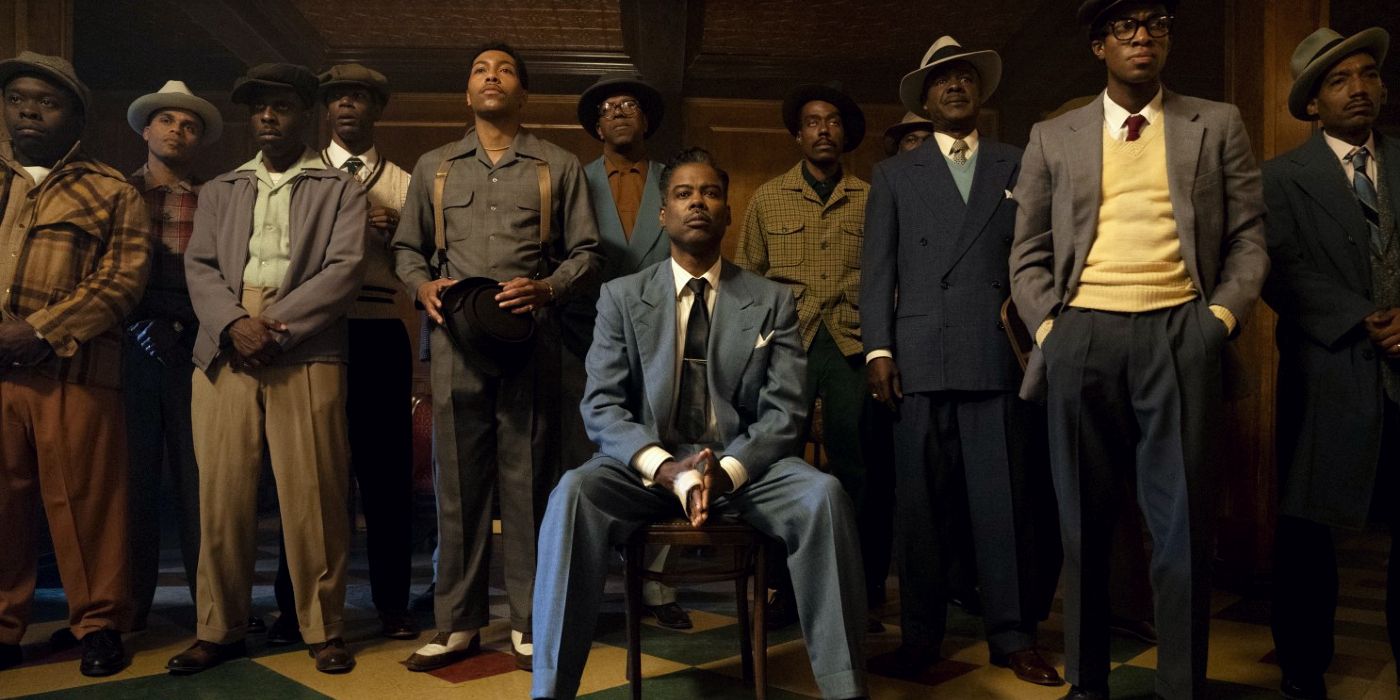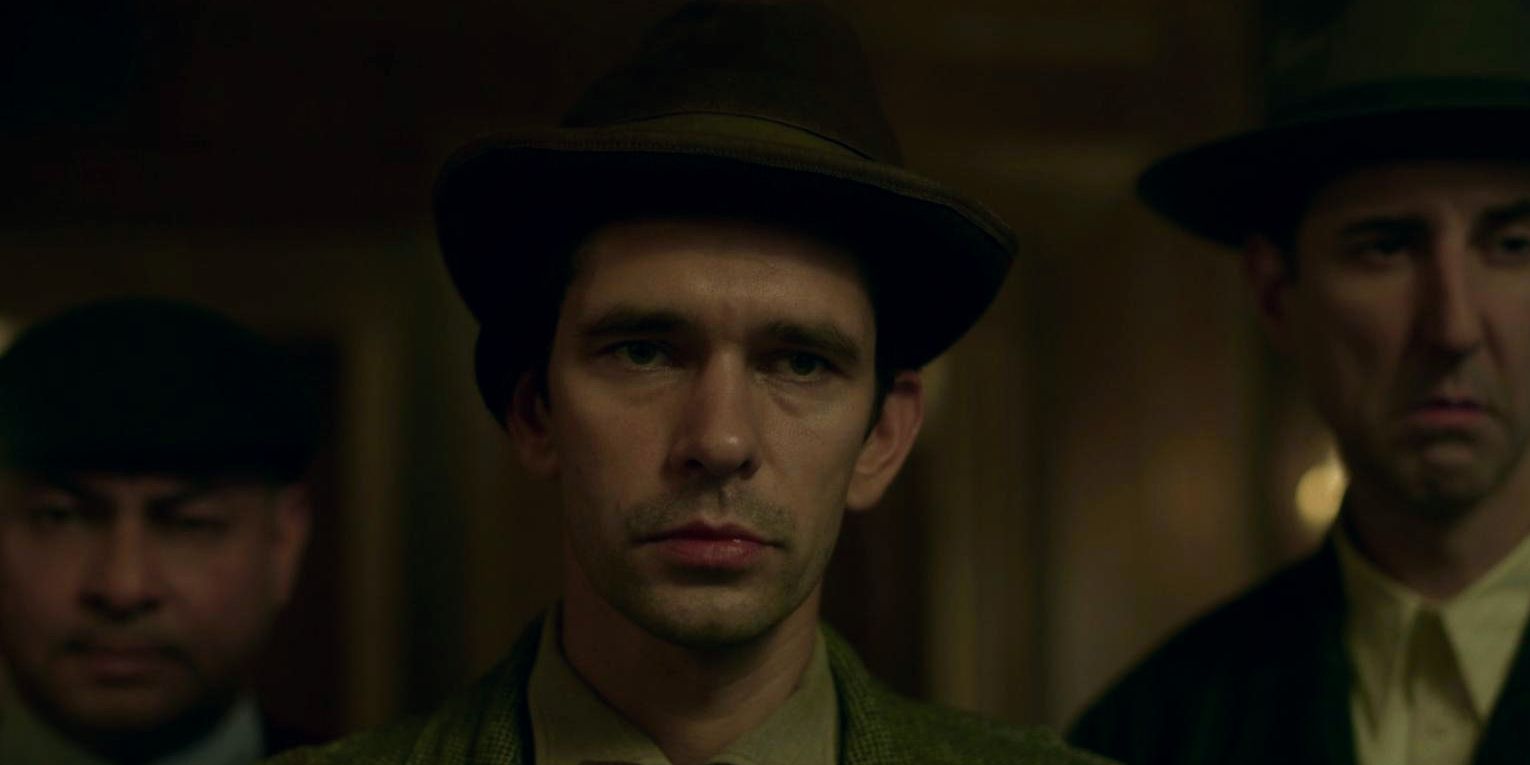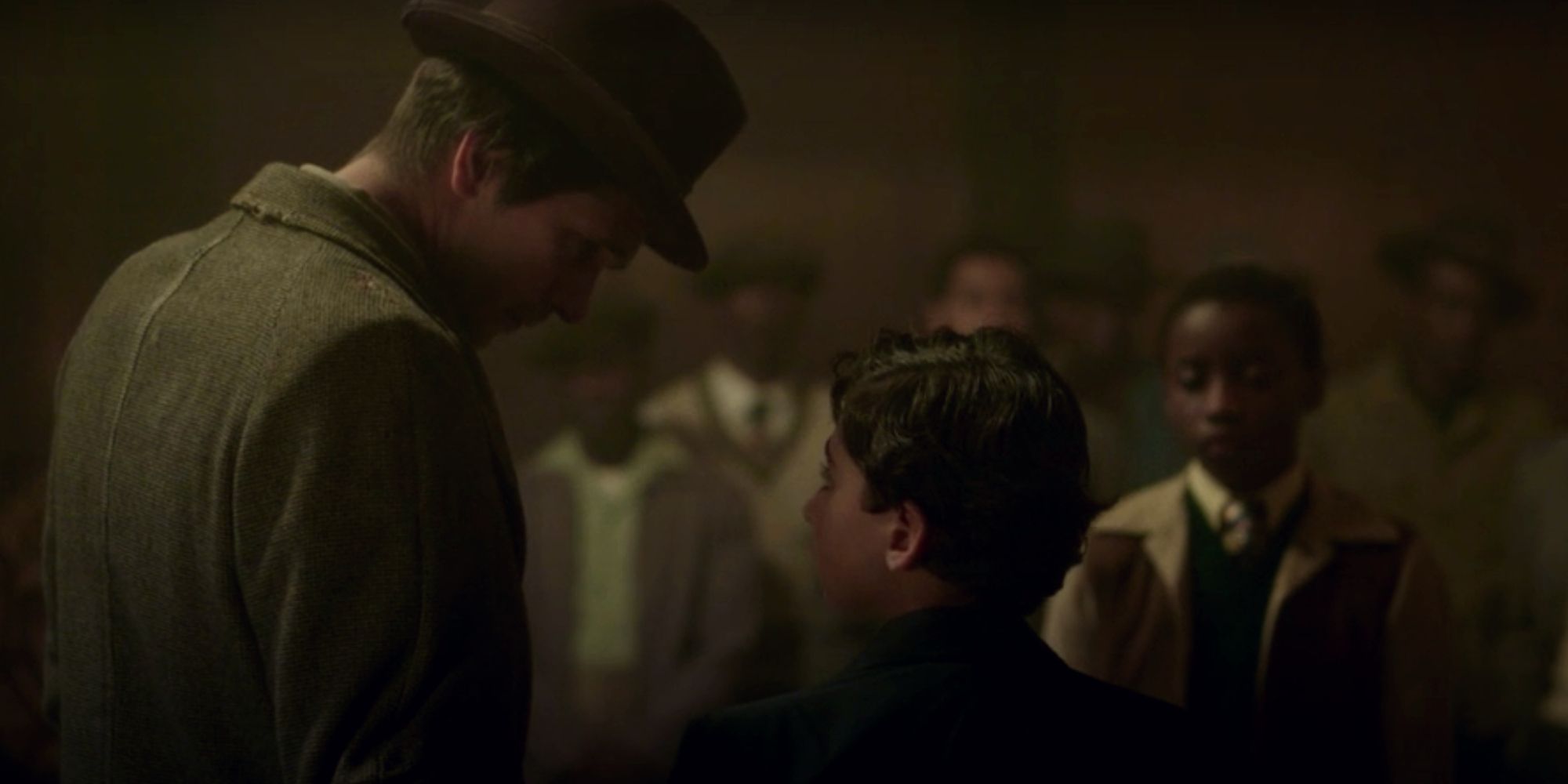
Fargo season 4 centers on Kansas City criminals who have an odd but important tradition: rival gangs trading their youngest sons. Created by Noah Hawley, the series is based on the Coen Brothers’ movie (also called Fargo), with the first season taking inspiration from the events of the movie and later seasons following linked but ultimately original plots. While the series examines a wide variety of themes, each season’s story centers narratively around crime, often exploring the ways in which family dynamics complicate and drive characters’ choices.
Though Fargo season 4 has been described as a slight departure from previous seasons, it maintains the Fargo's focus on family ties, turning its eye not only to internal conflict, but to families that are at once pitted against each other and interlinked. Past seasons have explored the workings of a powerful but fractured crime family, the Gerhardts, and the intensity of sibling rivalry between brothers Ray and Emmit Stussy. Fargo season 4 seems almost to combine these two concepts as it follows the Fadda and Cannon crime families as they battle for control of Kansas City, Missouri.
Fargo season 4, episode 1, “Welcome to the Alternate Economy” establishes a complex history of crime in Kansas City, explained by Ethelrida Smutney, a bright young woman who is giving a history presentation at school. She outlines a long criminal tradition, making note of the frequent transfers of power as old leaders are unseated by the new. Ethelrida offers insight on the cultural implications of such constant upheaval that prove to be deeply interesting.

As Fargo season 4 begins, new character Ethelrida explains that the trading of sons begins in 1920 to “keep the peace”, when Irish gang the Milligan Concern arrives in Kansas City threatening the reign of the Moskovitz Syndicate, a group of Jewish criminals whose country of origin isn’t made explicitly clear. The leader of each crime family trades their youngest son to the opposite side, believing understanding can be fostered by raising the enemy’s child. Of course, it isn’t so simple; the Irish take out the Moskovitz Syndicate with help from the youngest Milligan child, a double agent of sorts who betrays his found family in favor of his blood relations. This child, as it turns out, is quite important in the series, as it is revealed he grows up to be Rabbi Milligan. His father forces him to kill the Moskovitz child, insinuating that he must prove himself by murdering the person who took his place in the family.

Rabbi’s first appearance in the new Fargo timeline is when he is traded from the Milligans to the Moskovitzes, who raise him from 1920 to 1928, but he reappears as a key player whenever power changes hands, and will likely continue to play this role as the season progresses. After betraying the Moskovitz Syndicate and returning to his birth family, the Milligans, Rabbi is traded again in 1934 to the Italian gang, the Fadda Family. Feeling betrayed by the Milligans, Rabbi helps the Faddas take out the Irish and kills his father. He remains a part of the Fadda Family, and in 1949, takes it upon himself to look after Satchel, son of Loy Cannon who runs the Cannon Limited. During this trade, it is revealed that not only is Rabbi Milligan the defecting Milligan son, but also that Josto is the Fadda son who traded places with Rabbi back in 1934.
Having been a part of each major crime family to take up residence in Kansas City, Rabbi Milligain is in a unique position. He empathizes with Satchel, who seems to feel estranged both from the Faddas and the Cannons. During the trade, Rabbi takes it upon himself to present a reluctant Zirominu Fadda, demanding the Cannons treat him with dignity, and to look after Satchel Cannon. Though Satchel doesn’t show it during the actual trade, he begs his father not to send him away before the trade, angry at being uprooted. Another distinct quality, Rabbi’s cultural mixing is highlighted in the show: he sports an Irish accent and last name, is called the Jewish title of Rabbi, and runs with the Italian Faddas. It emphasizes his position as an outsider among people who are already considered outsiders from society: Loy pokes fun at him for it, and some of the Faddas, namely Josto’s brother Gaetano, doubt his loyalty.

When asked about his nationality, Rabbi Milligan answers that he is American - a clear reference to the “great American melting pot,” which Ethelrida also gestures to, asking how one can assimilate to America when it is a nation of immigrants, each with their own culture. Rabbi’s fluid loyalties are likely an extension of Fargo's meaning on this topic; though he always chooses a clear side, Rabbi doesn’t necessarily identify strongly with any one cultural background, even though he has grown up in three different ones.
The question of loyalty is especially interesting when considering the fates of Zirominu (affectionately called Ziro) and Satchel, whose allegiances are as of yet unclear. There seems to be an affection between Loy and Ziro that Loy doesn’t show to his own son. Loy is much more aloof with Satchel, insisting that he will one day return home, but not offering him any real warmth. While Ziro is welcomed home by the Faddas, Satchel does not seem to have a strong connection with either crime family, feeling rejected by both his own family (who sent him away) and the Faddas (who won’t even allow him to sit at their dinner table). Rabbi Milligan takes Satchel under his wing, explaining to the boy that he is not Jewish, but simply "played the hand [he was] dealt," which meant blending with the Moskovitz family. In encouraging both Satchel and Ziro to be whoever their respective situations require, he may be stirring up further unrest.
It’s worth noting that the first three trades are preceded by a spit shake between the opposing leaders, but Loy raises the stakes by slashing his palm and offering it to the then-head of the Fadda Family, Donatello. Fadda agrees, and the two men shake hands, their blood indistinguishable as it drips, mixed, onto the snow below. The heightening of this particular part of the ritual speaks to incoming change, and it’s possible that this change may manifest in Ziro and Satchel’s respective allegiances changing, as Rabbis have in the past. Given the recent fan theory making the rounds that Satchel may grow up to be season 2 villain Mike Milligan, there is sure to be ample excitement and upheaval ahead. Fargo season 4 is not just exploring family dynamics, but making a statement about the fluidity of identity, both cultural and familial, proving that blood is not always thicker than water.
Next: Fargo: What Happened To The Money After The Movie
from ScreenRant - Feed https://ift.tt/3cZNnjJ

0 Comments